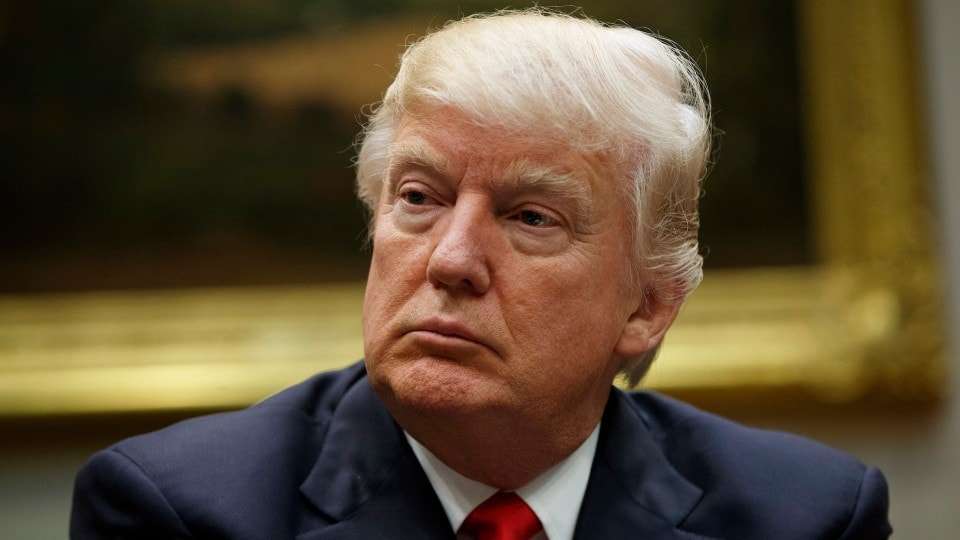The Volokh Conspiracy
Mostly law professors | Sometimes contrarian | Often libertarian | Always independent
Large-scale military intervention against Assad requires congressional authorization

Earlier tonight, the United States launched cruise missiles against a Syrian military base in retaliation for the Assad regime's brutal use of chemical weapons against civilians. Assad's atrocities are appalling. Perhaps they even justify US military intervention. Nonetheless, it is essential to remember the constitutional requirement that initiating war requires congressional authorization. That is both legally necessary, and the right choice from a prudential point of view.
Article I of the Constitution very clearly reserves to Congress the power to start a war. The Founders sought to avoid a dangerous situation in which a single man could take the nation to war. Even Alexander Hamilton - the strongest supporter of sweeping presidential power among the framers of the Constitution - recognized that "the Legislature have a right to make war" and that "it is . . . the duty of the Executive to preserve Peace till war is declared."
The situation would be different if Assad attacked us first. In that event, Trump would be merely waging a war already begun by the enemy. But for all of its many sins, the Syrian government was not previously at war with the United States, and Assad did not attack us. Indeed, just a few months ago, Donald Trump spoke of cooperating with Assad and his Russian allies in waging war against ISIS.
Starting two wars without congressional authorization (those against Libya and ISIS) was one of the worst constitutional legacies of the Obama administration. President Obama even admitted that the Libya intervention was his worst mistake, though he has never admitted that it was unconstitutional.
During the transition period, I warned that these precedents were a dangerous "loaded gun" that Obama has left Trump, and urged Congress to reassert its war powers. I did not know that those warnings would become relevant so quickly.
As the failures of Obama's Libya policy demonstrate, obeying the constitutional requirement of congressional authorization is not just a legal technicality. It also helps ensure that we don't initiate dubious conflicts at the behest of a single man, and that we maximize the chances of success if we do start a new war. If the president is required to get congressional authorization before starting a war, he is forced to build up a broad political consensus behind his decision, which in turn increases the likelihood that we will stay the course until victory is achieved, as opposed to bailing out as soon as difficulties arise. If such a consensus is absent, it is likely best to forego entering a conflict to begin with.
This vital check on presidential power is particularly important with a president whose understanding of international relations is dubious at best. But even a more competent president should not be trusted with the power to ensnare us in a war on his say-so alone.
Sadly, Congress has done little to assert its war powers in recent years. A few principled senators and representatives, such as Democrat Tim Kaine and Republican Rand Paul, have decried this neglect. It is long past time for their colleagues to listen.
Bashar Assad is a brutal dictator, and I welcome Trump's belated reconsideration of his earlier overly rosy view of that regime and (and perhaps also its Russian patrons). But, as I emphasized when Obama considered striking Syria under similar circumstances in 2013, there are no easy solutions to the Syria problem. Small-scale uses of force, like the one tonight, are unlikely to do much to constrain Assad. Large-scale intervention could end up inadvertently helping Assad's enemies, some of whom - like ISIS - are just as brutal and just as hostile to US interests as Assad himself. Large-scale intervention could also lead to a dangerous confrontation with Assad's Russian allies. Russian personnel were apparently present at the airbase attacked tonight (though the US did warn them in advance).
I am, to put it mildly, no fan of the regime of Vladimir Putin, and its horrible policies in Ukraine, Syria, and elsewhere. If tonight puts an end to Trump's weird and troubling dalliance with the Kremlin, that might well be a good thing. But it does not follow that we should risk direct military confrontation with Russian forces in Syria without, at the very least, a serious debate on the subject in Congress and the nation at large.
At this point, it is not clear how far Trump intends to push this intervention. If it is limited to a small number of missile strikes or air attacks like the one that occurred tonight, it might be possible to argue that this military action is too small-scale to qualify as a "war" and therefore does not require congressional authorization. It may not be easy to find the exact point at which a small-scale military action becomes big enough to count as a "war" requiring Congress' approval. But any extensive intervention against the Assad regime aimed at overthrowing it or severely degrading its military forces, surely qualifies. Congress - and the rest of us - must insist on that. And sooner rather than later.
UPDATE: Georgetown law professor Marty Lederman argues that the US military action against Assad has already gone far enough to be both unconstitutional and a violation of international law. I don't think I would go quite that far. But it will be unconstitutional if it goes much further without congressional authorization.
UPDATE #2: Back in 2013, when President Obama was urging a strike against Syria, Trump tweeted that "The President must get Congressional approval before attacking Syria-big mistake if he does not!" He would be wise to heed his own advice now.


Show Comments (0)